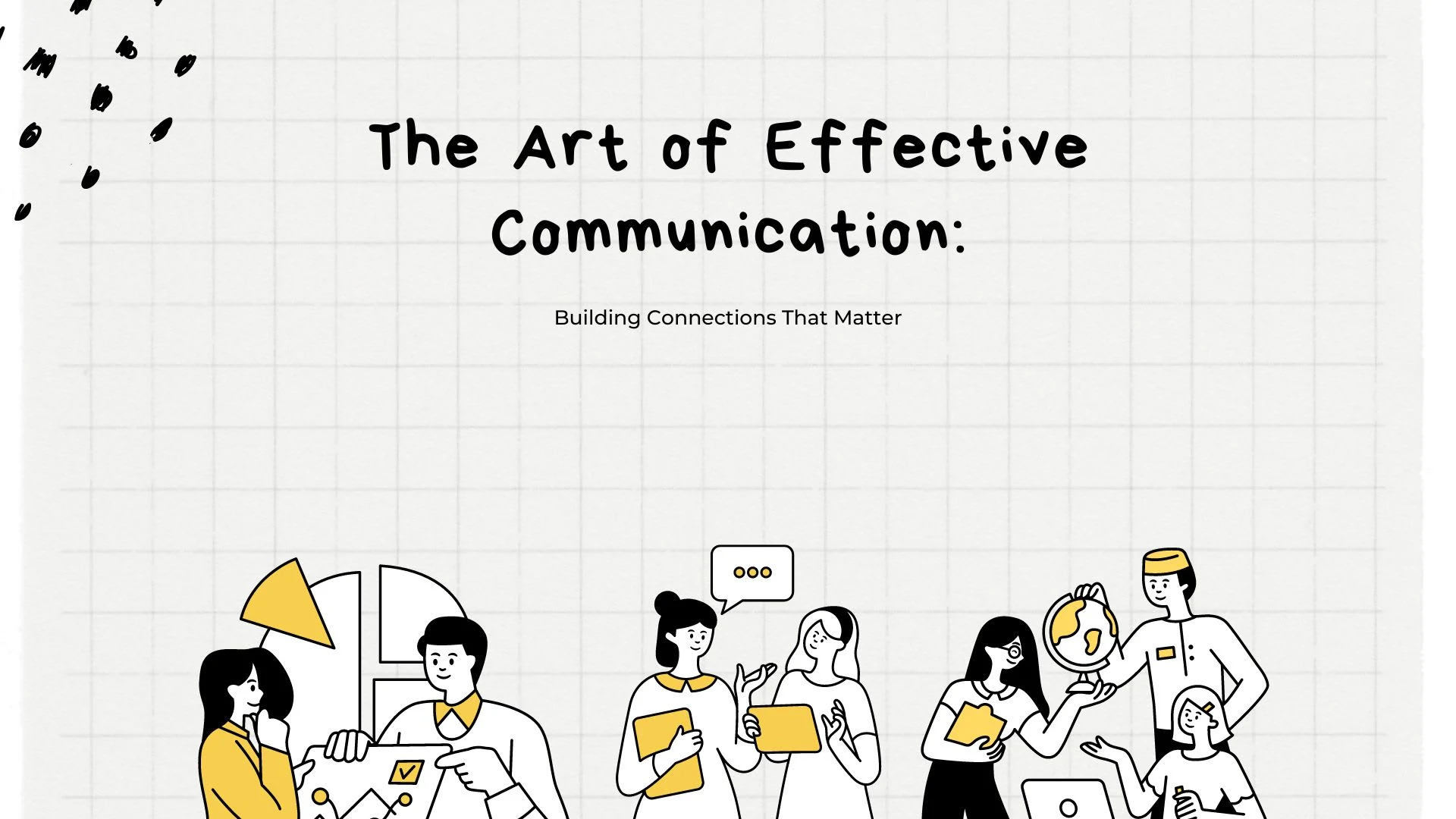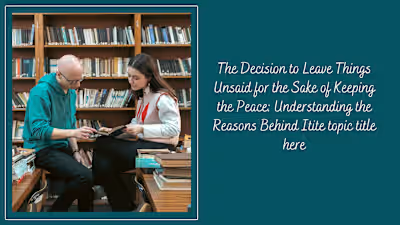Title: The Art of Effective Communication: Building Connections…

In today's fast-paced and interconnected world, effective communication has become more critical than ever. The ability to convey thoughts, feelings, and ideas with clarity and empathy can significantly impact our personal relationships, professional success, and overall well-being. This article explores the art of effective communication, delving into the key elements that empower individuals to build meaningful connections with others.
Communication is the cornerstone of human interaction, transcending language barriers and cultural differences. The power of effective communication lies in its ability to create bonds, foster understanding, and resolve conflicts. Whether in personal relationships, the workplace, or everyday encounters, mastering the art of effective communication can lead to more profound connections and a more fulfilling life.
Active Listening: The Foundation of Connection
At the core of effective communication lies active listening—a skill often overlooked but invaluable in building strong relationships. Active listening involves more than just hearing words; it requires being fully present and attentive to the speaker, observing non-verbal cues, and empathizing with their emotions. By genuinely listening to others, we validate their experiences and make them feel valued and understood.
Active listening is a dynamic process that goes beyond passive reception. It involves engaging with the speaker, seeking to understand their perspectives, and reflecting on their words. Through active listening, we create a safe space for individuals to express themselves authentically. It enhances trust and openness in relationships, strengthening the foundation of genuine connections.
To practice active listening, set aside distractions and focus solely on the speaker. Maintain eye contact, a nod to show understanding, and provide verbal cues to acknowledge their thoughts. Avoid interrupting or formulating responses before they have finished speaking. By practicing active listening, we show respect and empathy for others, fostering an atmosphere of trust and openness.
The Power of Assertiveness
Being assertive in communication is crucial for expressing our needs, opinions, and boundaries confidently, while also respecting those of others. It helps prevent misunderstandings and build honest and transparent relationships. Assertiveness allows us to stand up for ourselves without being aggressive or submissive, striking a balance between our rights and the rights of others.
Assertiveness involves clear and direct communication of our thoughts and feelings. By expressing ourselves assertively, we avoid passive-aggressive behaviors that can lead to resentment and miscommunication. It empowers us to communicate our desires and expectations effectively, fostering mutual respect and understanding in our interactions.
To be more assertive, practice using "I" statements to express your feelings and needs, avoiding accusatory language. Respectfully assert your boundaries and preferences without belittling or invalidating the opinions of others. Recognize that asserting yourself does not make you selfish but rather empowers you to advocate for your well-being and ensure that your opinions are heard and respected.
Empathy: The Bridge to Understanding
Empathy is the ability to understand and share the feelings of another person. It is a crucial component of effective communication as it enables us to connect with others on a deeper level. By putting ourselves in the shoes of others, we gain insight into their emotions, experiences, and perspectives.
Empathy goes beyond sympathy, as it involves actively listening and attempting to understand another person's emotions without judgment. It is about being present with them in their moments of joy, sadness, or struggle. When we empathize, we offer support and validation to others, fostering a sense of connection and trust.
To cultivate empathy, practice active observation and listen with an open heart. Avoid making assumptions about someone's emotions or experiences. Instead, seek to understand their perspective by asking open-ended questions and acknowledging their feelings. Remember that empathy is not about fixing problems but about offering genuine support and validation.
Conflict Resolution: Navigating Disagreements with Grace
Conflict is an inevitable part of any relationship, but how we handle it can determine the strength of that relationship. Effective communication plays a vital role in resolving conflicts constructively and maintaining harmony.
When faced with conflict, approach the situation with a calm and composed demeanor. Practice active listening to understand the root of the disagreement and seek common ground for resolution. Avoid blaming and focus on finding solutions that benefit all parties involved. Remember, conflicts can be opportunities for growth and understanding if handled with respect and empathy.
In conflict resolution, communication plays a dual role. On one hand, it allows us to express our feelings and concerns, and on the other, it enables us to listen and understand the perspectives of others. By engaging in open and honest communication during conflicts, we create a supportive environment for finding solutions and moving forward together.
Conclusion:
Effective communication is a transformative skill that nurtures connections and enriches our lives. By mastering the art of active listening, assertiveness, empathy, and conflict resolution, individuals can create meaningful relationships that endure life's ups and downs. Remember that effective communication is a journey of continuous learning and improvement, and each interaction presents an opportunity to grow and connect with others authentically.
Embrace the power of effective communication, and you will undoubtedly witness a positive impact on your relationships, career, and overall well-being. As we strive to become better communicators, let us foster a culture of empathy, respect, and understanding, building connections that truly matter in our lives.
Effective communication is a transformative skill that enriches our relationships and enhances our overall well-being. By mastering active listening, assertiveness, empathy, and conflict resolution, we can forge meaningful connections that endure life's challenges. Remember, effective communication is a continuous journey of growth and learning, offering endless opportunities to connect authentically with others. Embrace its power, and you'll witness a positive impact on your personal and professional life. Let us cultivate a culture of empathy and respect, building connections that truly matter in our lives.
Like this project
Posted Aug 9, 2023
"Discover the art of effective communication: active listening, assertiveness, empathy, conflict resolution. Build lasting connections for success."
Likes
0
Views
56





